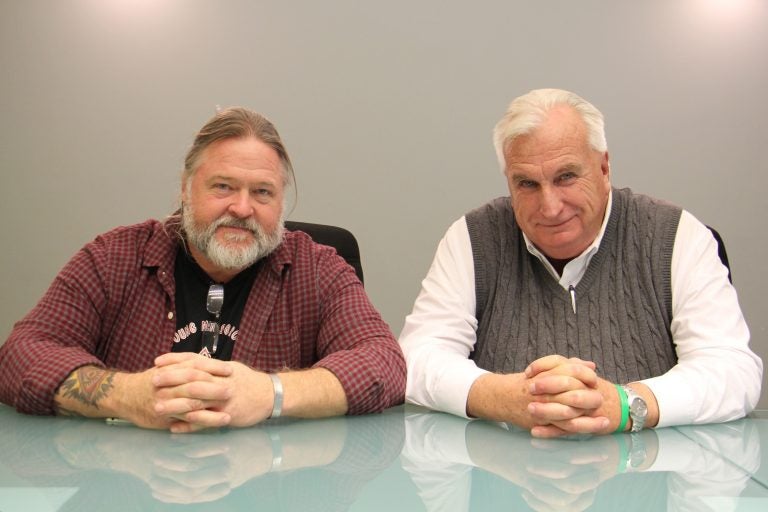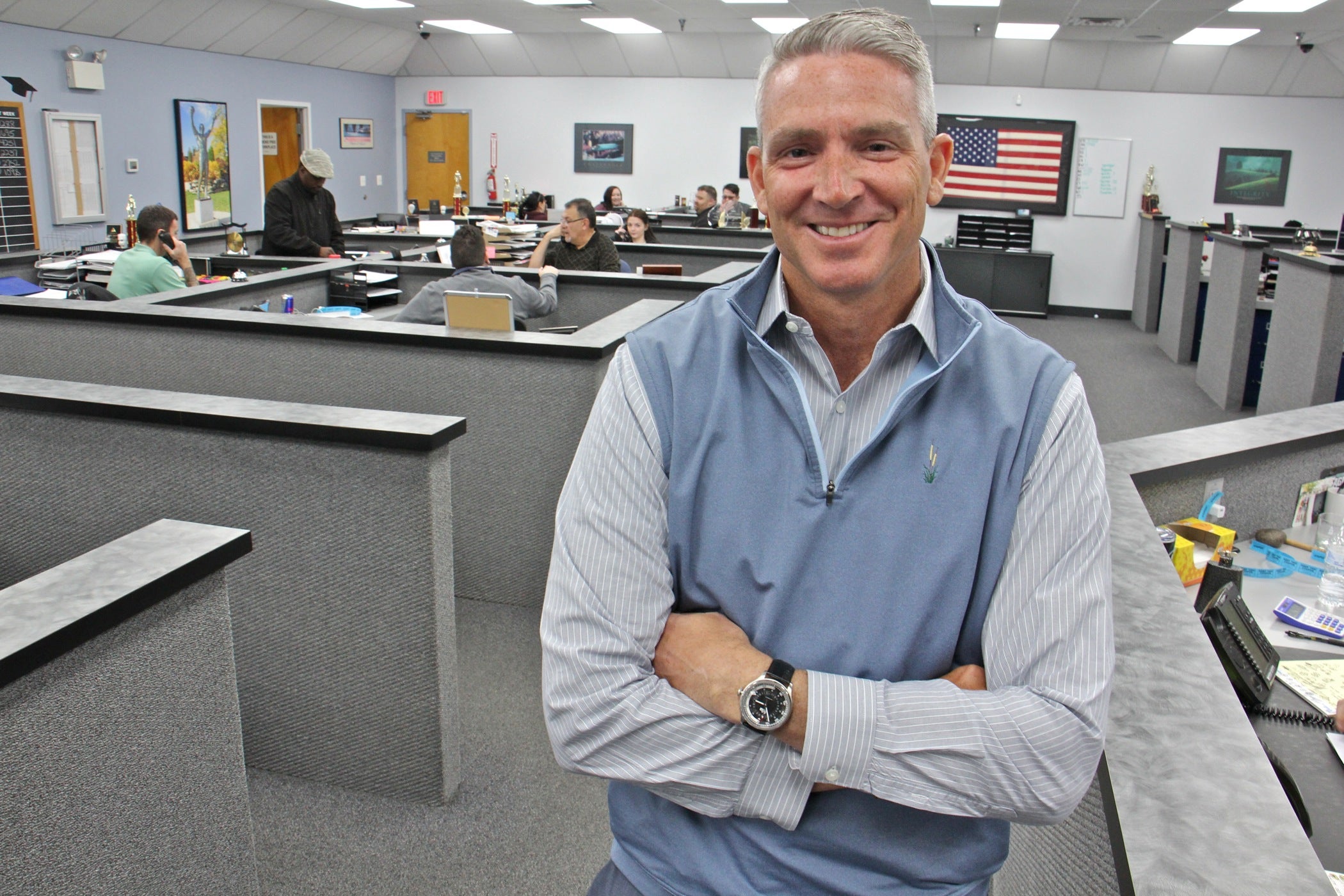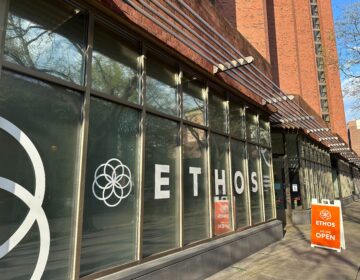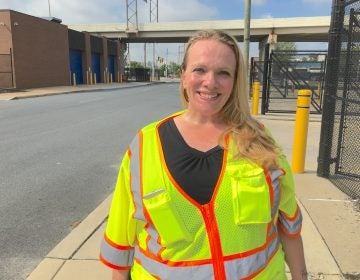Bucks pair makes it easier for those in recovery to make a living
Based in Bucks County, the site is designed to function like Zip Recruiter or Monster.com – employers pay to post jobs and those seeking work apply for them.
Listen 2:18
Doug Kiker (left) and Dan Schmalen are founders of Retrofit Careers, a job portal for those in successful drug and alcohol recovery. (Emma Lee/WHYY)
Doug Kiker, who runs a construction company, said a lot of guys in recovery come to him looking for work. Sober for 13 years, he said he helps out when he can because people in recovery make great employees.
“After an Eagles game, they don’t show up all tore up — they’re ready to work the next day,” he said with a laugh.
But Kiker can’t hire everyone who comes his way, so he often refers job seekers to other employers who he knows are open to giving a chance to someone with a history of addiction.
That got Kiker thinking there should be a formal way to match up employers willing to hire people in recovery with those looking for work — without all the tough questions about their spotty past.
He teamed up with Dan Schmalen, also in recovery, to start a website called Retrofit Careers. Based in Bucks County, the site is designed to function like Zip Recruiter or Monster.com – employers pay to post jobs and those seeking work apply for them. The only difference here is that the employers know they’re drawing from a pool of people who are in recovery from drug and alcohol addiction.
That makes it easier for applicants to explain what might appear as big holes in their resumes.
“The answer is, well, that’s when I was out in my problem. This is when I was rehabbing, this is when I was on the street,” Kiker said. “This is why I got fired from my last job. But today, it’s not like that. Today I’m sober, I have six months, I have a year.”
Under federal law, it is illegal for an employer to discriminate against someone in recovery if they are not currently using. Because substance use disorder, known as SUD, can count as a disability, the American Disabilities Act protects people with SUD from being fired or not being hired by a private company specifically for that reason.
But addiction can mean people are unemployed for long stretches, making them less qualified candidates for jobs. It is also possible many don’t know a history of addiction can count as a protected class. And there are other complications.
Kiker said that among people he talks to in recovery who are employed, many are more likely to stay in low-level jobs because they are afraid of all the questions they would be asked during a job interview for a better position.
“The next person you’re gonna apply with is gonna say, ‘What’s this problem? What were you doing two years ago, why do you have this time missing?’ And the old ‘I was taking care of a sick family member’ has probably been used up a little too much, you know?”
Retrofit, in its infancy, is still working on getting the word out to employers and job seekers. Some of the interest has come naturally – such as a request from Delta Lighting Products, just a few miles from Retrofit’s startup office in Bensalem. About 50 Delta employees sell lighting and cleaning supplies over the phone to companies across the country.
The ambiance on the call center floor is energized and cheerful. The radio blasts, employees flip through hand-written, neon note cards and munch on snacks at their desk. They joke with each other and occasionally bang a gong when someone makes a good sale. Their starting wage is $10 an hour, full time, with benefits. As they log time with the company, they earn a commission.
Delta vice president Joe Arndt has been recruiting employees in recovery for a while now — one of his managers is in recovery and sends referrals to the hiring office.
“They’re tremendously loyal to us, and they just work harder because they realize that they don’t necessarily have a lot of other options,” said Arndt. “Which is kind of sad because … they are hard workers.”
When Arndt saw a newspaper article about Retrofit, he jumped at the chance to recruit more workers like those already working for the company.
“I’m not gonna sit here and say … we’re saints and we really want to help the community, which we do,” Arndt explained. “But, at the same time, we see it is an opportunity to get more employees like the ones we had gotten.”

Research on whether those in long-term, successful recovery make better employees is limited. For his part, Arndt said he understands the risks involved in hiring people in recovery — commission jobs aren’t for everyone, and the potential for relapse is real.
But a lot of those are risks come with any hire, he said. Research has found 10 percent of the active workforce is currently dealing with a substance use disorder – in some industries, such as construction, it’s nearly twice that. An expense calculator developed by the National Safety Council estimates that a construction company in Pennsylvania with 100 employees would lose about $41,000 a year in costs associated with lost time, insurance coverage and job turnover.
At least this way, Arndt figured, the issue is out in the open.
WHYY is your source for fact-based, in-depth journalism and information. As a nonprofit organization, we rely on financial support from readers like you. Please give today.





